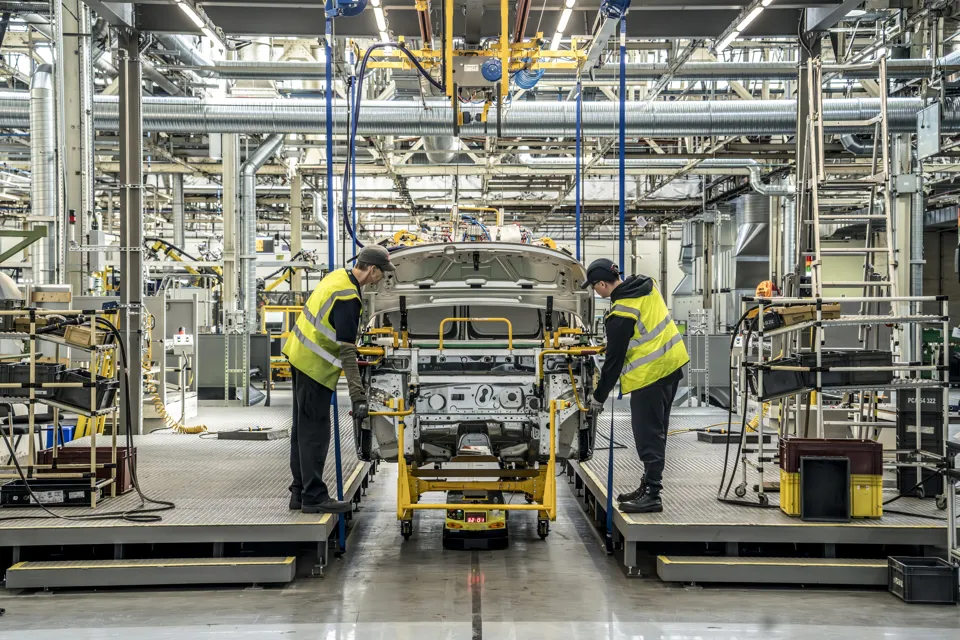UK car production rose 14.8% in November, according to the latest figures published today by the Society of Motor Manufacturers and Traders (SMMT).
A total of 91,923 cars rolled out of factory gates, an increase of 11,832 on November last year, representing the best performance for the month since 2020.
Production for both the home and overseas markets increased, up 13.4% and 15.2% respectively. 22,919 cars stayed in the UK though, as always, exports drove volumes.
Export growth was driven mainly by the EU, China and Turkey, although Europe received by far the bulk (60.8%) of all shipments, reinforcing the need for tariff-free electrified vehicle trade across the Channel. Shipments to these markets rose, by 22.4%, 37.3% and 208.8% respectively, offsetting a 21.6% fall in cars heading to the US.
UK production of battery electric (BEV), plug-in hybrid (PHEV) and hybrid (HEV) vehicles continued its upward trajectory, combined volumes up 20.0% to 35,169 in November and representing 38.3% of total manufacturing output.
Since January, UK car factories have turned out a record 322,577 of these crucial vehicles, up 53.7% on the same period in 2022, pushing overall production volumes up 119,499 units on 2022, to 843,345 units – already 68,331 units ahead of full year 2022 with December’s figures still to come.
Mike Hawes, SMMT chief executive, said: “UK car production is firmly back on track following the tough Covid years and resulting supply chain challenges. With significant investment committed to UK automotive manufacturing, production volumes increasing and the imminent threat of tariffs on EVs traded with the EU now removed by the extension of current rules of origin until 2027, there is renewed confidence in the sector.
“We now need to see the Anglo-European battery industry build capacity at pace to meet forecast demand.”
The news comes as EU and UK lawmakers approve the European Commission’s proposal to extend the current EU-UK trade rules governing EVs and batteries to the end of 2026. The deal means car makers will avoiding tariffs on electrified vehicles traded between the two markets until 2027.



















Login to comment
Comments
No comments have been made yet.